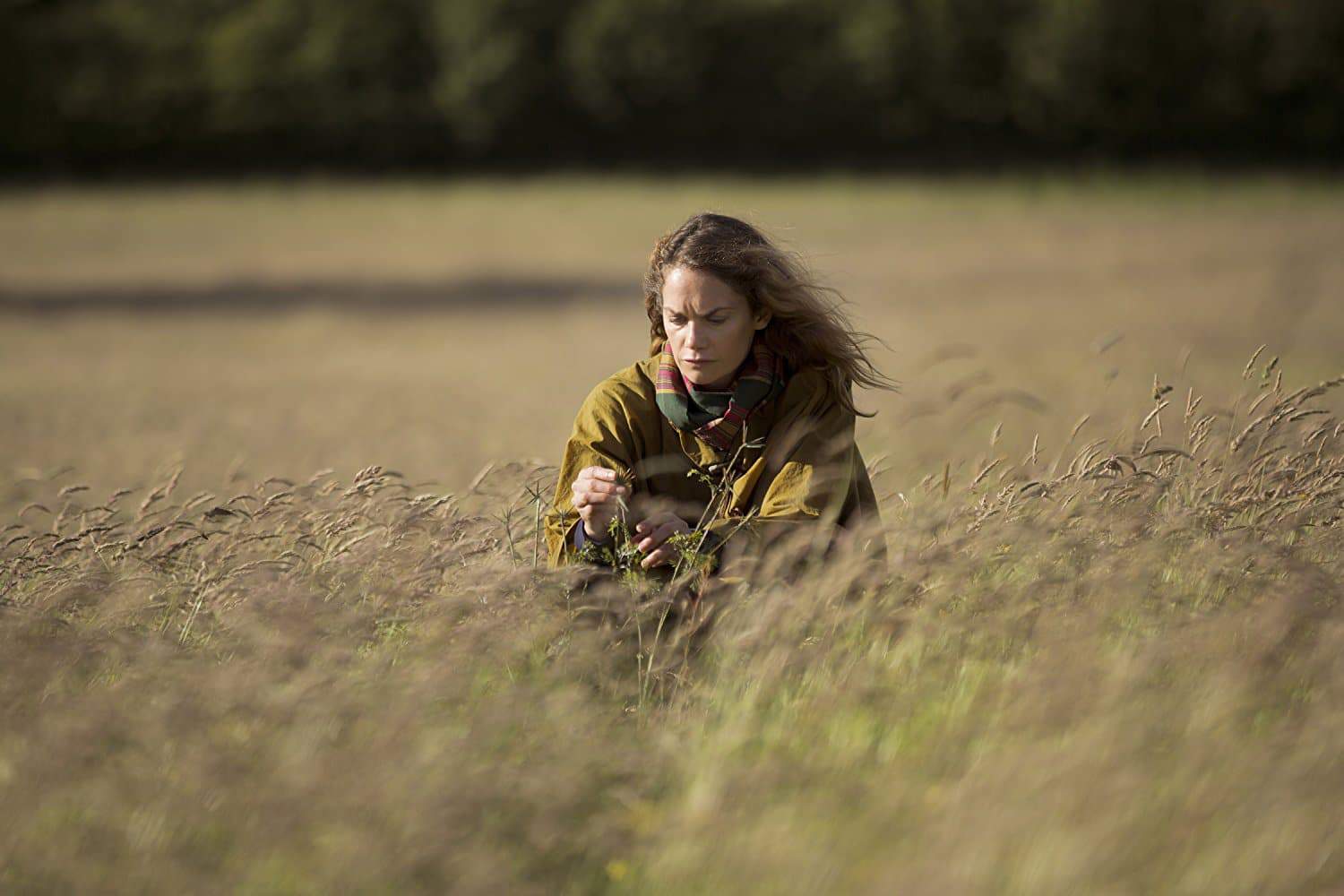
A melancholic ode to how the past haunts the present, Dark River ironically plays through like a lackluster echo of films that have come before.
The third feature film from British writer-director Clio Barnard, Dark River is a narrative about the aftermath of abusive family relationships in the context of the crumbling, bitter world of modern farming. On two fronts, it is a film inherently undermined by being a later arrival to already crowded playing fields, coming on the heels of an avalanche of female-centered abuse aftermath and revenge narratives like Coralie Fargeat’s Revenge, as well as on the tail end of a wave of brooding dramas of isolated modern farming life such as last year’s God’s Own Country. Arriving late to a party isn’t necessarily a death sentence—Paul Thomas Anderson’s artist-muse exploration Phantom Thread didn’t suffer for coming just months after Darren Aronofsky’s mother! or on the heels of multiple other drams featuring poisonous mushrooms in a starring role—but the general rule of thumb is that a late arrival to a party ought to arrive in style. That is, a film showing up to the proverbial scene late needs to be better than the competitors that beat it to the finish line—and it is here where Dark River truly stumbles.
Most everything about Dark River feels tired.
The narrative around a taciturn woman who can skin a rabbit without flinching but is also fundamentally brittle is tired. That all we see her do for 90 minutes is react to the decisions made and actions taken by the men in her life is tired. Even the title is tired, with all the vivacity of a generic production placeholder (it’s literally being released on the same day as a film with the synonymous title Black Water).
The cinematography, too, has a lackluster lethargy to it, using the austere bucolic majesty of Yorkshire as a crutch. As films like last year’s The Florida Project have demonstrated, in skilled hands cinematographic beauty can be found just about anywhere, but Dark River is a data point from the opposite end of the spectrum. Shots more often than not give the impression that a camera was plopped in the corner of a field and pointed at the actors with a shrug and a “that’ll do.”
There are some welcome exceptions, like a handful of sequences with decidedly fetal imagery—again, perhaps a somewhat overplayed hand, but beautiful nonetheless—but these are unfortunately the exception as opposed to the rule. Like many things about the film, the end result, visually, is not genuinely bad so much as just fine, but coming from an accomplished cinematographer such as Adriano Goldman, whose credits include Cary Joji Fukunaga’s Jane Eyre and six episodes of The Crown, one expects so much more.
Ruth Wilson and Mark Stanley preform admirably as estranged brother-sister pair Alice and Joe, vying for the tenancy of the family farm after the death of their father, but in the end more is placed on their shoulders than perhaps any actor could successfully bear. Dark River was loosely adapted from Rose Tremain’s novel Trespass, and that the film is based on a novel that relies heavily on literature’s particular affinity for exploring interior lives—widely regarded as a particular weakness of film as a medium—is evident throughout. The basic cinematic translation of an interior monologue that a book could fully detail is a long take of an actor looking troubled. Far too often Dark River falls into the trap of films happy to leave things at this bare minimum, as if under the impression that if an actor acts hard enough, for lack of a better phrase, they can somehow telepathically broadcast their character’s thoughts to the audience. Ultimately, there is a fine line between being ambiguous, which is the degree of uncertainty inherent to the fundamental ability to ever truly enter the mind of another person, and opacity, which is staring at an actor staring into space.
On the supporting front, Sean Bean makes for a properly menacing “ghost” as Alice and Joe’s abusive father, Richard, in elegantly integrated flashbacks. If there is one regard in which Dark River excels, it is in editing. Flashback sequences intercut past and present seamlessly in a way that feels utterly natural—a feat which looks effortless when pulled off, but that relatively few films successfully accomplish, especially considering the frequency with which films utilize flashbacks. Ironically, an element that in many other films represents a weak point is one of Dark River‘s strengths, of which there are unfortunately few.
The film has a sort of distant apathy about it in spite of the charged subject matter; an academic studying specimens of human emotion while wearing latex gloves. It tackles the pain and isolation of old, unhealed trauma and the bleakness of struggling to survive in a dying livelihood, and yet still plays out as cold and numbing as a dip in its titular waters—a damp chill where one would expect to find all the burning rage of a fire.
Dark River opens in theaters on Friday, June 29th at the Village East Theater in NYC and in Los Angeles at the Laemmle Monica Film Center.

